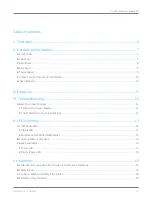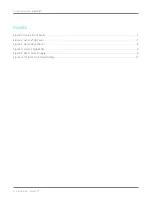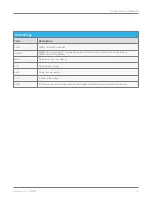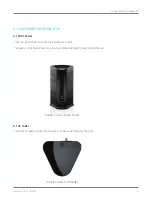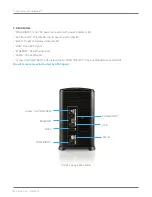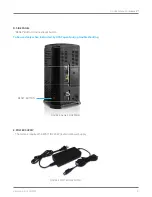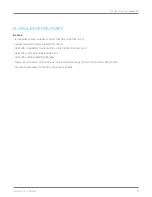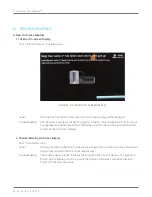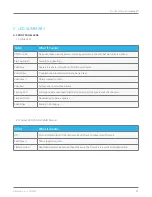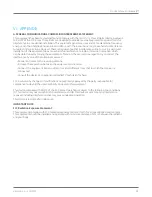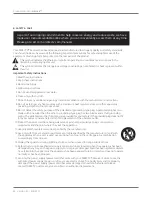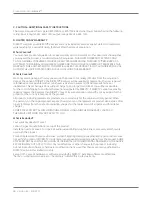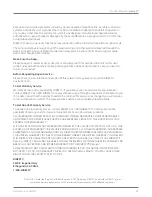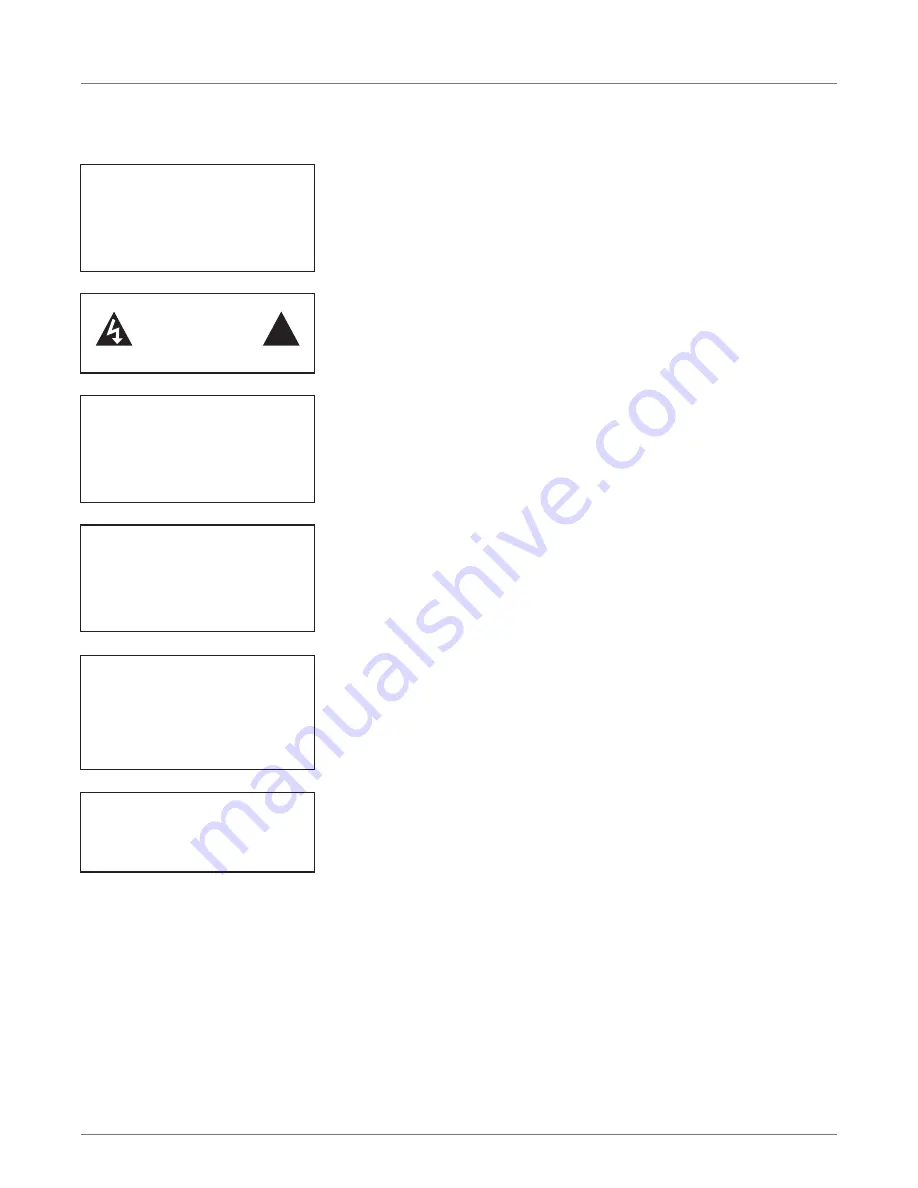
• Ensure proper ventilation—the vent slots on the DIRECTV® Receiver must
be left uncovered to allow proper airflow to the unit. Blocking the airflow
to the unit could impair performance or damage your receiver and other
components.
• Do not stack electronic components or other objects on top of the
DIRECTV® Receiver. Also, do not stack the receiver on top of a hot
component such as an audio power amplifier.
• Protect your components from power surges by connecting all the
components before plugging any power cords into the wall outlet. Use
of a surge protector is also recommended.
• Don’t overload power outlets or extension cords, which can result in the
risk of fire or shock. It’s also important to use only the type of power
source indicated on the marking label or in this manual.
• Avoid audio hum or interference by inserting all cable plugs firmly into
their jacks. Also, place Audio/Video (A/V) cables to the sides of the TV
back panel rather than down the middle once connected. Try not to coil
any twin-lead cables and keep them away from A/V cables as much as
possible.
• Never insert objects of any kind into any openings in the DIRECTV®
Receiver (other than the DIRECTV® Access Card as detailed in this
manual).
• Place it on a flat, hard surface—do not operate the DIRECTV® Receiver on
a carpet or other padded surface.
• Always unplug your DIRECTV® Receiver before moving it.
• Always unplug the DIRECTV® Receiver, TV and other equipment before
you connect or disconnect any cables.
• The only way to disconnect the DIRECTV® Receiver from the power supply
is to remove the power cord. The DIRECTV® Receiver unit must therefore
be installed next to the power point, which must be easily accessible.
• CAUTION: Electric Shock—never attempt to disassemble the DIRECTV®
Receiver yourself; always take it to a qualified service person when repair
is required. Opening or removing covers may expose dangerous voltage
or other risks, and incorrect reassembly can cause shock when receiver
is subsequently used. Attempted self-repair may also void your warranty.
Changes or modifications not expressly approved by the party responsible
for compliance (by the warranty or by the manufacturer) could void the
user’s authority to operate the equipment.
• Do not drop your DIRECTV® Receiver and always move it with care.
• Have your DIRECTV® Receiver professionally serviced (do not attempt to
service it yourself).
• Any changes or modifications in the construction of this device which are
not expressly approved by the party responsible for compliance could
void the user’s authority to operate the equipment.
• If you move your DIRECTV® Receiver between locations at different
temperatures, allow it to reach room temperature before you apply power
to it.
• Do not pick up or otherwise move your DIRECTV® Receiver while it is
connected to the AC power supply. If you want to move your DIRECTV®
Receiver, first disconnect it, then wait at least 30 seconds before
continuing.
•
CAUTION: To reduce the risk of fire, use only No. 26 AWG or better
telecommunications line cord.
•
CAUTION: Replace remote control batteries with same or equivalent type.
There is danger of explosion if batteries are incorrectly replaced.
• For your information: The identification sticker can be located behind the
small door on the front panel of your receiver.
• The telecommunication network voltage used is the category number 3.
• See product bottom for important safety information.
WARNING: To reduce the risk of fire or electronic
shock, do not expose this product to rain or moisture.
The apparatus shall not be exposed to dripping or
splashing and no objects filled with liquids, such as
vases, shall be placed on the receiver.
CAUTION
RISK OF ELECTRIC SHOCK
DO NOT OPEN!
!
CAUTION: To reduce the risk of electric shock, do not
remove cover
(or back).
No user serviceable parts inside.
Refer servicing to qualified service personnel.
IMPORTANT: Be sure not to place your DIRECTV®
Receiver near anything WET or HOT.
If this product is rated at 240VAC, a suitable
attachment plug should be used.
CAUTION: Avoid moisture to reduce the risk of fire or
electric shock. The DIRECTV® Receiver should not be
used near water (for example, kitchen sink, bathtub,
pool, damp basement). Also, never spill liquid on
the receiver, and do not place vases or other vessels
containing liquid on top of it.
TIP: We highly recommend plugging the DIRECTV®
Receiver into a surge protector to prevent damage
from fluctuations in your power supply.
Note to Satellite Dish Installer: This reminder is
provided to call your attention to articles 810
and 820 of the 2011 National Electrical Code.
Refer to article 810, in particular 810-1 and
810-15, for required grounding of the metal
structure of the dish antenna. Refer also to
the 810-2 which, by reference to article 820,
requires that the satellite dish coaxial cable
shield be connected to the grounding system
of the building as close to the point of cable
entry as practical.
Product Manual—
Genie 2™
Version 2.0 – 4/4/2017
17

